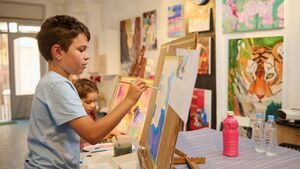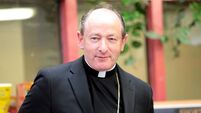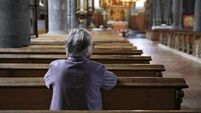Catherine Drea: A future of wonder

The future will depend on creativity and how well our education systems manage to open up to a totally unknown world that our young people are facing
When you talk with people of my generation about school days you get a very mixed bag of memories. Many of my friends, especially the men, have been confronted with terrifying experiences of violence and abuse at school, and many others hated school because of shaming or bad teaching. The past is not exactly a rosy picture.
Recently, a local school has been revealing reams of names of abusers, mostly dead, and more male friends have been coming to terms with the impact and the trauma they inflicted. It got me thinking about teachers and the incredibly important roles that they play in the lives of our children.
While nuns often get a bad rap after the release of women from black habits and veils, many of the young nuns in our school fully embraced a kind of feminist revolution in the church. There was no hiding their joy at shorter skirts and showing a bit of hair. We used to joke a lot about how they started to pluck their eyebrows and dye the little fringe that was initially permitted.
All of this added to a positive school experience for many of the girls who were lucky enough to witness all this.
We never forget the people who care for us especially, if they have the rare and valuable qualities of kindness, compassion and make us feel safe. Teachers are highly academically trained and yet the ones I remember are the ones who could communicate brilliantly or who could create an uplifting atmosphere in the classroom. One or two of my favourites were older nuns with a wicked sense of humour.
Once when our class grumbled about the hideous gym slips with giant box pleats front and back, our head nun responded with, “Sure won’t the young lads just love that, wondering what on earth might be underneath all those pleats!”
I have probably recreated in my imagination a very rosy picture of my art teacher but I think she topped the bill for good vibes in our school. Her art room was up a rickety stairs on the top floor. In there she had a cluttered space with colour everywhere and windows looking out on the back gate and the road home.
She was an older woman, with a flask of tea and her own sandwiches, which indicated that she never managed to get as far as the staff room to engage with the other teachers. She wore tweed skirts and had her greying hair in a loose bun.
Classes were chatty and a bit chaotic, but what a relief from Latin conjugations and maths, two of the many subjects I was hopeless in.
Our art teacher talked about the beauty of the west of Ireland, about light, she played records, she recycled old bottles and papers, she talked about art and artists. Later I went to her home for advice and she lived in a cosy old-fashioned bungalow with an overgrown garden and lots of watercolours on the go.
I think from then on I aspired to have a similar set up!
Teachers can become real human relationships for young people. We learn more than the skills and the subjects they are teaching. They can be friends, mentors, advisors. They can be role models of how to live, how to work and how to interact in positive ways.
Is teaching soon to become redundant as education changes along with the development of Artificial Intelligence and robotics? I’m assuming, especially after the horror stories of young people’s struggles during the pandemic, that teaching is one skill that cannot be replaced by computers. Evidence now suggests that the isolation of online learning and the lack of face-to-face relationships had a very negative impact on the young people of that generation.
Ultimately, the future will depend on creativity and how well our education systems manage to open up to a totally unknown world that our young people are facing. It is hard to imagine what jobs will be easily replaced by AI and what jobs will be irreplaceable. Will a basic income for all protect us from poverty and form a foundation for creating new possibilities?
These are some of the future dilemmas I read about and all I know is that children will need to be educated for extremes of transience, disruption and upheaval.
I returned to my old street where I grew up recently. The oldest remaining neighbour, the last of her generation, had just passed away at age 101. I remember the working men, our fathers, on that street. “Office jobs” were what they were educated for. Off they went every day to their desks and supported many of us future generations to live a little more and work a lot less!
Children starting school this September at approximately aged four will retire in approximately 2090! We have absolutely no idea what the world will be like by then and yet we are educating people for it.
So, as the great artist Picasso once said: "Every child is an artist. The problem is how to remain an artist once we grow up."
That is now the great challenge of teachers.
How to assist young people to stay open, creative and prepared to innovate.
Imagine if our grandchildren could look back on their teachers and marvel at the sense of wonder, beauty and learning that they experienced in the future Irish education system? Bring it on.






